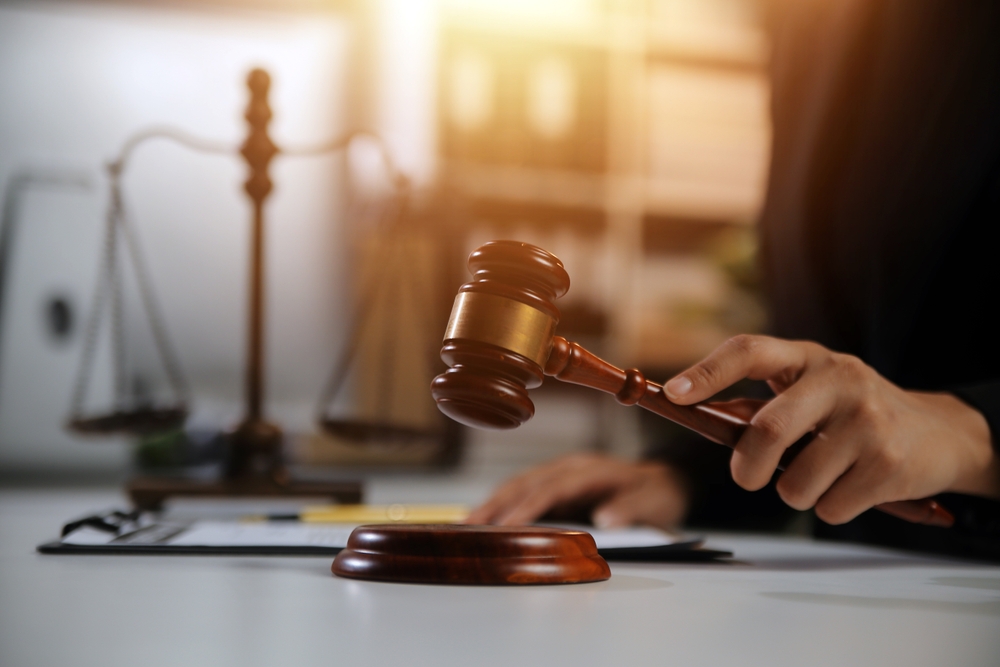At Legal Recoveries, we specialise in providing tailored insolvency services to help businesses navigate the complexities of debt recovery via the insolvency route. Tactically, using insolvency proceedings to recover debts can be very efficient where it is ascertained that an individual or business has assets that they would not wish to lose within an insolvency action. Whether it’s issuing Statutory Demands or managing Winding Up Petitions, we’re here to support you every step of the way.
Our Insolvency Services
1. Issuing Statutory Demands
A Statutory Demand is often the first step in insolvency proceedings. It is a formal request for payment of a debt owed by an individual or business. Our experienced team drafts, prepares and arranges for personal service of the Statutory Demand, ensuring compliance with all legal requirements.
2. Bankruptcy and Winding-Up Petitions
When debt remains unpaid, we can issue a Bankruptcy Petition against an individual or Winding-Up Petition against a business. It is important to note that both of these processes must adhere to strict procedural rules and timescales. Our goal is to recover funds while minimising risks for creditors.
3. Creditor Recovery
We help creditors maximise recoveries by representing their interests in insolvency cases. This includes reviewing debtor assets, monitoring proceedings, and ensuring compliance with insolvency laws.
4. Liquidation and Administration Support
In cases where businesses enter liquidation or administration, we provide expert advice on how to recover outstanding debts effectively.

Why Choose Legal Recoveries?
Download Our Expert Guides
Enhance your understanding of the debt recovery process with our detailed guides and resources. Whether you’re dealing with insolvency cases or defended claims, our downloadable assets provide valuable insights and practical advice to support your business. Click below to access these free resources and take the next step towards effective debt management.
Frequently Asked Questions
What are insolvency services and how can they help my business?
Insolvency services involve professional management of situations where an individual or company cannot pay their debts as they fall due. These services help creditors recover debts through formal insolvency procedures such as statutory demands, bankruptcy petitions, winding-up petitions, liquidation, or administration. Using insolvency strategically can maximise recoveries when other debt recovery methods have failed, while ensuring compliance with UK insolvency laws. Professionals in insolvency services guide all parties through complex processes to protect creditor interests and handle asset realisation efficiently.
What is a Statutory Demand and when should I use one?
A Statutory Demand is a formal written request served to a debtor demanding payment of a debt within 21 days. It is often the first formal step leading to insolvency proceedings if the debt remains unpaid. Serving a Statutory Demand can demonstrate seriousness, place pressure on the debtor to pay or negotiate, and establish grounds for a winding-up petition or bankruptcy petition if ignored. Legal Recoveries & Collections ensures all statutory requirements for service and content are met to give your claim maximum weight.
What is the difference between a Bankruptcy Petition and a Winding-Up Petition?
A Bankruptcy Petition is a legal claim issued against an individual who owes money and is unable to pay, which may lead to their bankruptcy declaration. In contrast, a Winding-Up Petition is issued against a company that fails to pay its debts, potentially resulting in compulsory liquidation. Both processes have strict legal rules and timelines, and are typically used as last-resort measures to recover owed money. LRC supports clients throughout, preparing petitions correctly and advising on risks and outcomes.
What documents and information do I need to provide for insolvency proceedings?
To initiate insolvency action, you must provide clear evidence of the debt owed including invoices, contracts, statements, correspondence history, and proof of service or communication attempts. Additional information about the debtor such as asset details, trading history, and company status will support effective strategy and enforcement. Accurate and comprehensive documentation facilitates smooth processing and strengthens your chance of recovery.
How long does the insolvency process usually take?
The insolvency timeline varies significantly depending on the procedure, debtor cooperation, court availability, and complexity of the case. Serving a Statutory Demand takes 21 days before a petition can be filed; winding-up or bankruptcy petitions can take several weeks to months before a court order or official receiver appointment. Subsequent asset realisation and distribution add to the timescale. LRC keeps clients informed with realistic expectations throughout each phase.
Can insolvency services help recover debts from companies and individuals?
Yes. Insolvency services can be applied to both companies and individuals. For companies, winding-up petitions or administration may be appropriate. For individuals, bankruptcy or Individual Voluntary Arrangements (IVAs) can be used. Each route has distinct legal requirements and implications, and LRC tailors advice and action plans based on the debtor’s type, financial position, and available assets.
What support does Legal Recoveries & Collections provide during insolvency proceedings?
Legal Recoveries & Collections offers end-to-end support including preparation and service of statutory demands, drafting and issuing bankruptcy or winding-up petitions, monitoring insolvency processes, liaising with official receivers or insolvency practitioners, and advising on maximising creditor recoveries. We ensure compliance with all legal requirements and act to mitigate risks, keeping you informed with clear guidance at every step.
What are the risks of using insolvency proceedings to recover debts?
While insolvency can be an effective recovery tool, risks include the cost and length of proceedings, potential delays due to court schedules or debtor challenges, and the possibility that insufficient assets exist to satisfy debts. There may also be reputational considerations depending on the debtor relationship. LRC advises clients on these risks upfront and conducts detailed assessments to recommend the most appropriate course of action.
How do insolvency services interact with other types of debt recovery?
Insolvency services are typically pursued after other collection efforts fail, forming part of a comprehensive debt recovery strategy. Pre-legal and legal recovery methods, such as Letters Before Action, County Court Judgments, and enforcement proceedings, are usually attempted first. Insolvency is then considered as a final but powerful step to secure repayment. LRC integrates insolvency with other approaches to maximise recovery outcomes.
Are insolvency services compliant with UK law and regulations?
Absolutely. Legal Recoveries & Collections strictly adhere to UK insolvency legislation and regulations, including the Insolvency Act 1986 and related statutory protocols. All documentation, petitions, and proceedings are handled following legal requirements and ethical standards. We maintain confidentiality and provide transparent communication, ensuring our clients and debtors are treated fairly throughout the insolvency process.
Get in Touch with Us
If you have any questions about our service or would like to discuss your matters with us in greater detail, please contact the Business Development Team on 0330 024 6342

